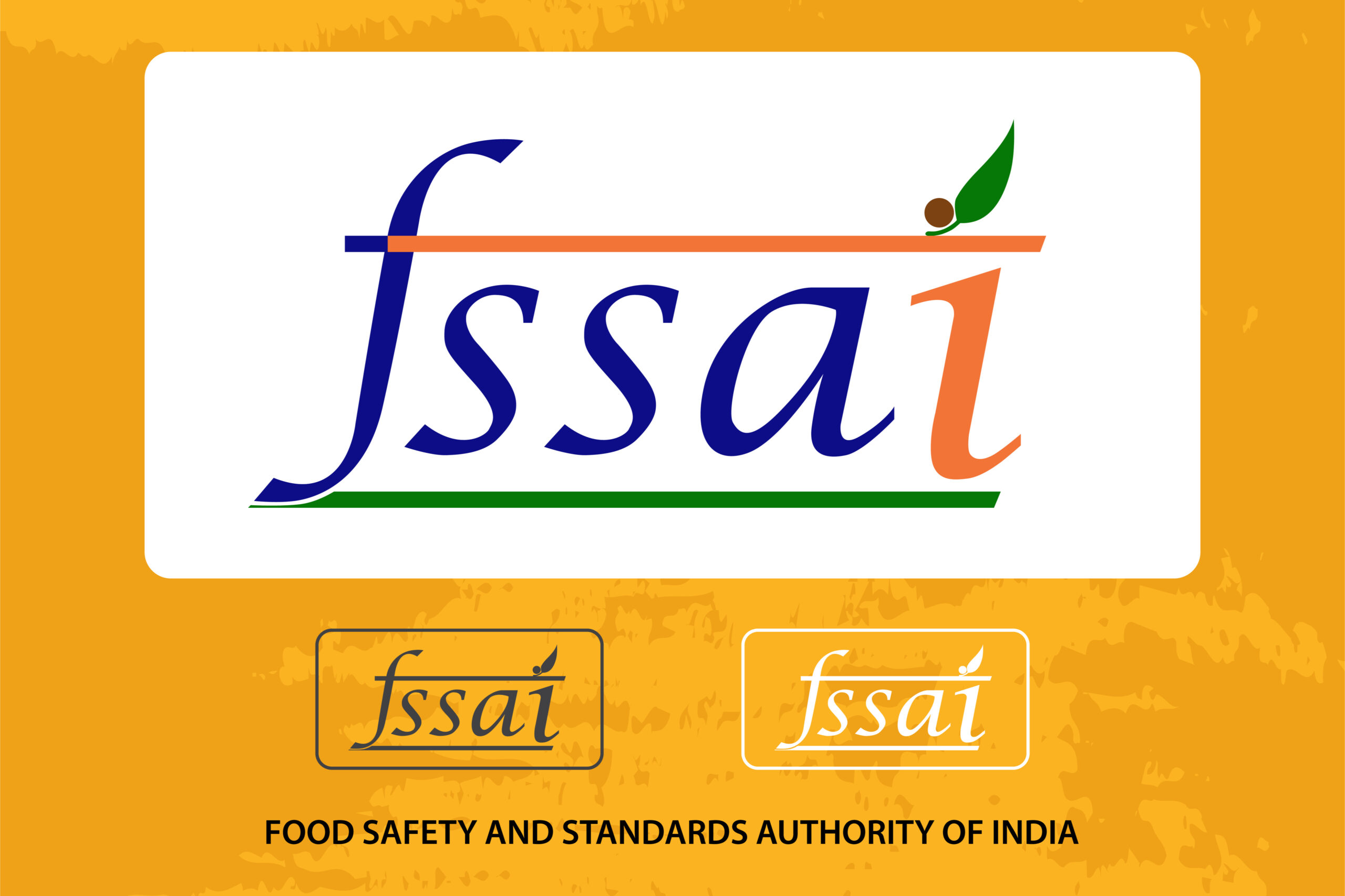The Food Safety and Standards Authority of India (FSSAI) plays a critical role in ensuring the safety and quality of food consumed across India. Established in 2008, it functions as the central regulatory body for food safety, overseeing a vast network from farm to fork.
The Food Safety and Standards Authority of India (FSSAI) serves as the central regulatory body for food safety in India. Established under the Ministry of Health and Family Welfare, the FSSAI oversees the entire food supply chain, encompassing manufacturing, storage, distribution, sale, and import of food products. Its primary function is to ensure food safety by setting and enforcing science-based standards for food composition and quality. This streamlines food safety regulations by consolidating previously disparate acts and orders under one unified framework.
The FSSAI has its headquarters in New Delhi. The authority also has four regional offices located in Delhi, Mumbai, Kolkata, and Chennai. There are 22 referral laboratories, 72 State/UT laboratories located throughout India, and 112 NABL-accredited private laboratories, all notified by FSSAI.
In 2021, the FSSAI may have implemented changes to benefit food businesses (manufacturers, handlers, packagers, and sellers). This could have involved extending license validity periods or simplifying renewal processes, but it likely did not introduce true perpetual licenses that never expire.
History
The Food Safety and Standards Authority of India (FSSAI) was established on September 5, 2008, under the Food Safety and Standards Act, 2006. This act, operationalized in the same year, aimed to streamline food safety regulations in India. The FSSAI functions under the administrative control of the Ministry of Health & Family Welfare.
Led by a chairperson and 22 members, the FSSAI plays a crucial role in ensuring food safety across the nation. It achieves this by:
- Setting science-based standards for food composition and quality. This ensures consistency and clarity for consumers, traders, manufacturers, and investors.
- Framing regulations to enforce these food safety standards.
- Laying down guidelines for accrediting laboratories that test food safety.
- Providing scientific advice and technical support to the central government on food safety matters.
- Contributing to the development of international technical standards for food safety.
- Collecting and collating data on food consumption, contamination, emerging risks, and other relevant factors.
- Disseminating information and promoting awareness about food safety and nutrition in India.
Location of Regional Offices
- Eastern Region: With regional office at Kolkata
- Northern Region: With regional office at Ghaziabad (assuming Ghaziabad is the only northern regional office)
- Western Region: With regional office at Mumbai
- Southern Region: With regional office at Chennai
Regulatory framework
The Food Safety and Standards Authority of India (FSSAI) is a statutory body established under the Food Safety and Standards Act, 2006. This act serves as the primary law for regulating food products in India. It sets up the framework for formulating and enforcing food safety standards. The FSSAI also appoints food safety authorities at the state level.
Seven Older Laws and Regulations
The FSSAI functions under the administrative control of the Ministry of Health and Family Welfare. Its main aims are to:
- Lay down science-based standards for food items.
- Regulate the manufacture, storage, distribution, import, and sale of food.
- Facilitate overall food safety in India.
The Food Safety and Standards Act (FSS Act) of 2006 streamlined food safety regulations in India. It consolidated seven older laws and regulations into a single, unified framework. These previously separate acts addressed various aspects of food safety, including:
| Legislation | Year of Establishment |
|---|---|
| Prevention of Food Adulteration | 1954 |
| Fruit Products | 1955 |
| Meat Food Products | 1973 |
| Vegetable Oil Products (Control) | 1947 |
| Edible Oils Packaging (Regulation) | 1998 |
| Solvent Extracted Oil, De-Oiled Meal and Edible Flour (Control) | 1967 |
| Milk and Milk Products | 1992 |
Departments
1. Foundational Departments:
- Human Resource & Finance Division
- General Administration and Policy Coordination Division
- Information Technology Division
2. Core Regulatory Functions:
- Science & Standards Division (I & II)
- Regulations Division
- Quality Assurance Division (I & II)
- Regulatory Compliance Division
3. Supporting Functions:
- Social and Behavioural Change Division
- Trade and International Cooperation Division
- Training Division
4. Additional:
- Rajbhasha (This department might deal with official languages used within FSSAI)
Research and Quality Assurance
Research
The FSSAI actively promotes research activities through its dedicated Research and Development division. This division focuses on:
- Generating new knowledge: This knowledge helps continuously update and improve food safety standards, ensuring alignment with international best practices.
- Evidence-based studies: Research findings contribute to the development and refinement of rules and regulations for food safety.
Quality Assurance
FSSAI is mandated to ensure food and beverage quality and standards. This includes:
- Laying down procedures and guidelines for notifying accredited laboratories that meet specific quality standards.
Overseeing a network of laboratories categorized as:
-
- FSSAI Notified NABL Accredited Labs (112)
- State Labs (72)
- Referral Labs (22)
Setting Standards
The FSSAI establishes and enforces food safety standards through various regulations. These regulations ensure consistent and science-based standards for various food categories, including:
- Dairy products and analogues
- Fats, oils, and fat emulsions
- Fruits and vegetable products
- Cereal and cereal products
- Meat and meat products
- Fish and fish products
- Sweets and confectionery
- Sweetening agents (including honey)
- Salt, spices, condiments, and related products
- Beverages (other than dairy and fruits & vegetables based)
- Other food products and ingredients
- Proprietary food
- Irradiated food
- Fortification of staple foods (vegetable oil, milk, salt, rice, and wheat flour)
By undertaking these comprehensive activities, the FSSAI strives to protect consumers and promote a food supply chain that adheres to the highest safety standards.
Enforcement
Food Safety Officers (FSOs) are responsible for enforcing and executing the provisions of the Food Safety and Standards Act, 2006 within their designated areas. The Commissioner of Food Safety and Designated Officers also have the authority to exercise the powers of Food Safety Officers.
FSOs possess the right to enter and inspect any place where food articles are manufactured, stored, or exhibited for commercial purposes. They are authorized to collect samples for analysis by a Food Analyst. The authority of an FSO to enter and inspect premises is equal to that of a police officer equipped with a search warrant under the Code of Criminal Procedure (CrPC).
Consumer Outreach
Applicable FSSAI License
The FSSAI issues three types of licenses for food businesses, determined by the business nature and annual turnover:
- Registration: Required for businesses with a turnover below ₹12 lakh.
- State License: Applicable for businesses with a turnover between ₹12 lakh and ₹20 crore.
- Central License: Mandatory for businesses with a turnover exceeding ₹20 crore.
In addition to turnover, other factors may be considered when evaluating the license application, such as the business location and number of retail stores.
Projects
State Food Safety Index (SFSI)
The State Food Safety Index (SFSI) is an annual evaluation system implemented by the Food Safety and Standards Authority of India (FSSAI) to assess the performance of Indian states and union territories on various food safety parameters. It essentially measures how well each state is doing in ensuring safe and healthy food for its citizens.
Purpose:
- To create a competitive environment among states, encouraging them to improve their food safety practices.
- To provide a framework for states to identify their strengths and weaknesses in food safety.
- To guide policymakers in allocating resources for food safety initiatives.
Evaluation Criteria:
The SFSI is based on five key parameters:
- Human Resources and Institutional Data: This assesses the availability of trained personnel, infrastructure, and legal framework for food safety.
- Compliance: This evaluates the effectiveness of enforcement mechanisms to ensure food businesses comply with food safety regulations.
- Food Testing – Infrastructure and Surveillance: This measures the capacity and efficiency of food testing laboratories and food safety surveillance systems.
- Training & Capacity Building: This assesses the efforts taken to train food business operators and consumers on food safety practices.
- Consumer Empowerment: This evaluates initiatives that empower consumers to make informed choices about food safety.
Outcomes:
The SFSI assigns a score to each state/UT based on their performance across these parameters. This ranking system:
- Creates a benchmark for comparing performance across different regions.
- Helps identify best practices that can be adopted by other states.
- Brings public attention to the importance of food safety.
Overall, the SFSI plays a crucial role in promoting a food safety culture across India by encouraging states to continuously improve their food safety standards.
How can we help you?
Vakilsearch simplifies the process of navigating legal and regulatory requirements for your business. Here’s how we can assist you:
- FSSAI Registration/License: As an essential requirement for all food businesses in India, Vakilsearch guides you through the FSSAI licensing process. We handle application submissions, document collection, and ensure compliance with FSSAI regulations.
- Business Incorporation: Vakilsearch facilitates the registration of various business structures, including sole proprietorships, partnerships, LLPs, private limited companies, and public limited companies. We manage the entire process from documentation to filing with the relevant authorities.
- GST Registration: Need help with Goods and Services Tax (GST) registration? Vakilsearch streamlines the process and ensures adherence to GST regulations.
- Trademark Protection: Safeguard your brand identity with Vakilsearch’s trademark registration services. We conduct thorough trademark searches, file applications, and manage communication with the Trademark Registry on your behalf.
- Import/Export Made Easy: Engaged in international trade? Vakilsearch assists with obtaining an Import Export Code (IEC) registration, guiding you through the application process and ensuring compliance with relevant regulations.
- MSME Registration Benefits: Vakilsearch helps micro, small, and medium enterprises (MSMEs) register under the MSME Act, unlocking benefits like easier access to credit, subsidies, and government scheme exemptions.
- Shop & Establishment Registration: Operating within a specific jurisdiction? Vakilsearch ensures compliance with local labor laws and regulations by facilitating your Shop and Establishment Act registration.
- Professional Tax Registration: Depending on your state and business type, professional tax registration might be necessary. Vakilsearch provides assistance with this process.
Also, Read:








